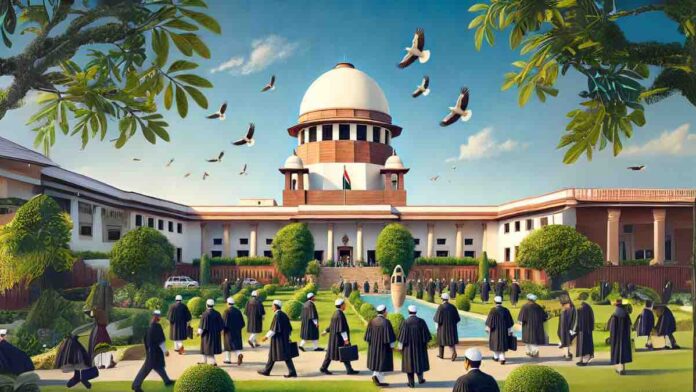The Supreme Court of India has reiterated that property granted to a woman in lieu of maintenance becomes her absolute property under Section 14(1) of the Hindu Succession Act, 1956 (HSA), unless explicitly restricted. In a judgment delivered in Civil Appeal No. 5389 of 2012, the Court dismissed the appeal of the appellant-defendants, resolving a
To Read More Please Subscribe to VIP Membership for Unlimited Access to All the Articles, Download Available Copies of Judgments/Order, Acess to Central/State Bare Acts, Advertisement Free Content, Access to More than 4000 Legal Drafts( Readymade Editable Formats of Suits, Petitions, Writs, Legal Notices, Divorce Petitions, 138 Notices, Bail Applications etc.) in Hindi and English.




